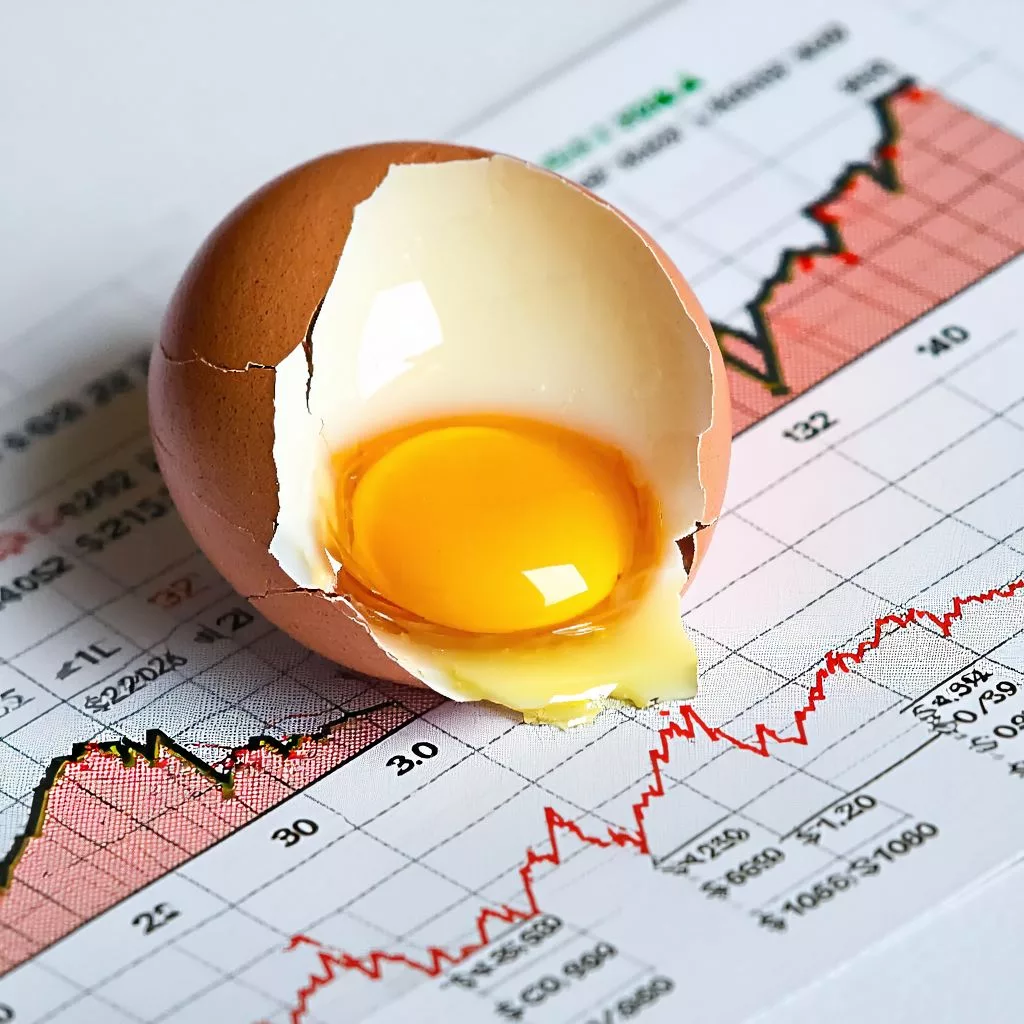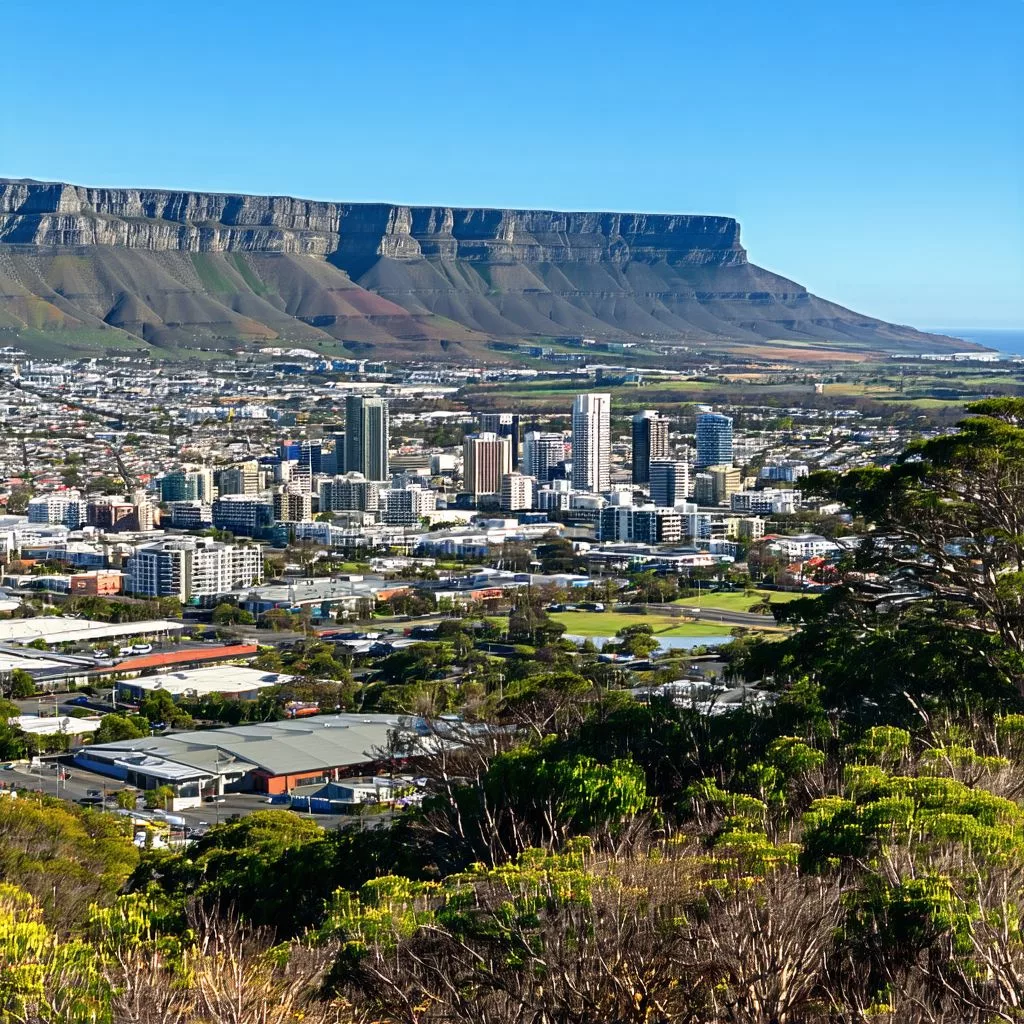Grocery prices in South Africa have skyrocketed, rising an astonishing 680% since 1995. This increase is driven by a mix of inflation, higher costs for food production, climate change, and global supply chain issues. Families are feeling the pinch, as staples like eggs and chicken have become luxuries they can barely afford. Despite these tough times, South Africans show incredible resilience, adapting to the challenges with hope for a better future. The struggle for affordable food highlights not just an economic crisis, but the strength of a nation facing adversity together.
What has caused the surge in grocery prices in South Africa?
The surge in grocery prices in South Africa is attributed to several key factors:
– Inflation: Grocery prices have risen 680% since 1995, outpacing the general inflation rate of 384%.
– Rising input costs: Increases in feed, fertilizers, and energy costs impact food production.
– Climate change: Extreme weather events affect agricultural output, reducing supply and driving prices up.
– Global supply chain disruptions: Geopolitical conflicts and economic instability lead to increased costs for imported raw materials.
The Inflationary Journey of Basic Groceries
South Africa, known for its rich cultural tapestry, has witnessed significant economic shifts over the past three decades, with grocery prices becoming a focal point of discussion. Since 1995, the cost of a basket of essential groceries has escalated from R82.68 to a staggering R644.85, indicating a 680% surge. This increase far surpasses the general inflation rate of 384%, highlighting a troubling trend of food price inflation that has deeply impacted the daily lives of South Africans. Essential items such as eggs, chicken, and cooking oil have become more expensive, reflecting a complex mix of economic and environmental factors.
Egg prices have skyrocketed by 1,079%, with the cost rising by R22.87. Similarly, chicken prices have increased by 812%, amounting to an R81.99 hike. Cooking oil, butter, and bread have all seen price increases exceeding 800% over the past thirty years. These dramatic changes in staple prices point to a larger issue involving multiple causes. To truly understand the challenges confronting South African households, one must explore the economic, environmental, and social dynamics that drive these price hikes.
Key contributors to rising food production costs include agricultural inputs like feed, fertilizers, and energy. The price hikes for these inputs inevitably affect the overall cost of food production. This economic reality becomes even more pronounced with disruptions in global supply chains, often intensified by geopolitical conflicts and economic instability. Such disruptions lead to delays and increased expenses for imported raw materials crucial to food production, further inflating prices within South Africa.
The Impact of Environmental Changes and Economic Pressures
Climate change significantly influences the ongoing rise in grocery prices. The frequency of extreme weather events and the unpredictability of seasons have severely affected local agricultural outputs, reducing the availability of essential crops and livestock. This scarcity drives prices higher, placing additional financial burdens on consumers. For middle- and low-income South African households, the impact is severe. A larger portion of their income now goes toward basic food items, limiting their ability to cover other essential costs.
For lower-income families, the situation is even direr. With rising food costs, many households face tough choices, often opting for quantity over quality in their diets. This compromise affects nutrition and diversity, exacerbating the issue of food insecurity nationwide. Amidst these rising costs, many families find themselves in increasingly precarious situations.
The poultry industry, a key component of the South African diet, exemplifies some of the sector’s most pressing challenges. The cost of feed, a significant factor in poultry production costs, has increased alongside global commodity prices for grains and oilseeds. This issue is compounded by avian influenza outbreaks, which disrupt production and lead to shortages, pushing prices even higher. As chicken remains a staple in the diet, these challenges in the poultry industry mirror broader agricultural sector issues.
Societal Challenges and Cultural Reflections
Dairy products, especially butter, have also become more expensive. The costs of feeding dairy cattle have risen due to higher global feed prices and energy costs. These factors, combined with supply chain challenges, create a perfect storm for consumers already struggling with rising food costs. The situation extends beyond a mere economic issue; it represents a societal challenge that demands urgent attention.
Drawing parallels to historical and artistic transformations, one can compare the adaptive journey of South African consumers to the post-colonial narratives in African art and literature. Just as artists and writers have redefined identity and place in a changing world, South African consumers must navigate an evolving economic landscape. The resilience and creativity seen in cultural expressions mirror the resourcefulness required to confront these contemporary challenges.
Despite these obstacles, hope persists for many that food prices may stabilize or even decrease. However, the unpredictability of global markets and the ongoing effects of climate change make such hopes uncertain. The path forward for South African consumers remains filled with challenges that demand innovative solutions and adaptive strategies.
Resilience and Hope Amidst Economic Challenges
Amid this intricate web of rising costs and economic pressures, South African households strive for stability and sustenance. This narrative is not solely an economic analysis but also a testament to human resilience and adaptation. As the nation grapples with these multifaceted challenges, the spirit of its people stands as a testament to enduring strength and hope.
The ongoing saga of rising grocery prices is a microcosm of broader global economic and environmental challenges. South Africa’s journey over the past thirty years serves as a poignant reminder of the complexities inherent in balancing economic growth, environmental stewardship, and societal well-being. In this unfolding narrative, each household and each consumer plays a role in shaping the country’s future, crafting a story of endurance and innovation in the face of adversity.
FAQ: The Evolution of Grocery Prices in South Africa
What has caused the surge in grocery prices in South Africa?
The surge in grocery prices is mainly due to a combination of factors, including:
– Inflation: Grocery prices have increased by 680% since 1995, exceeding the general inflation rate of 384%.
– Rising input costs: Higher feed, fertilizer, and energy costs directly affect food production.
– Climate change: Extreme weather events disrupt agricultural output, leading to reduced supply and higher prices.
– Global supply chain disruptions: Geopolitical conflicts and economic instability have led to increased costs for imported raw materials.
How have specific grocery items been affected by price increases?
Essential grocery items have seen significant price hikes, including:
– Eggs: Prices have increased by 1,079%, with a rise of R22.87.
– Chicken: Prices have surged by 812%, amounting to an R81.99 increase.
– Cooking oil, butter, and bread: All have experienced price increases exceeding 800% over the past thirty years.
What are the impacts of rising grocery prices on South African households?
Rising grocery prices have led to:
– Increased financial strain on families, particularly those in lower-income brackets.
– A larger percentage of household income being spent on basic food items, limiting funds available for other essentials.
– Poorer nutrition for many families, as they often have to choose quantity over quality in their diets.
How does climate change contribute to grocery price inflation?
Climate change affects grocery prices through:
– Increased frequency of extreme weather events, which disrupt agricultural production.
– Unpredictable seasons that hinder crop yields, leading to decreased supply.
– Reduced availability of essential crops and livestock, driving up prices.
What challenges does the poultry industry face in South Africa?
The South African poultry industry faces multiple challenges, including:
– Rising feed costs driven by global commodity prices for grains and oilseeds.
– Supply chain disruptions due to global economic instability.
– Outbreaks of avian influenza, which lead to production shortages and further price increases.
Is there hope for stabilization or decrease in grocery prices in the future?
While many South Africans hope for stabilization or a decrease in food prices, the reality is uncertain. Factors like ongoing climate change, global market unpredictability, and economic pressures continue to pose challenges. However, the resilience and resourcefulness of South African consumers may foster innovative solutions to navigate these tough times.












